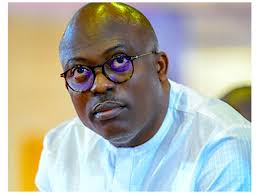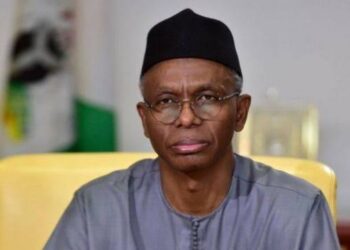The House of Representatives passed the 2022 Appropriation Bill at the second reading stage last Thursday, committing it to its Committee on Appropriations, to coordinate the activities of standing committees in the budget consideration process. JOSHUA EGBODO writes on the expectations, as committees engage Ministries, Departments and Agencies (MDAs) for defence
President’s request
Laying the proposed 2022 budget with a proposed aggregate expenditure of N16.39 trillion before a joint session of the National Assembly on Thursday, 7th October, President Muhammadu Buhari pointed out several ingredients of the proposal, which he termed “Budget of Economic Growth and Sustainability”.
On the priorities of the budget, the president noted that allocations to MDAs were guided by the strategic objectives of the National Development Plan of 2021 to 2025, which include; diversifying the economy, with robust MSME growth; investing in critical infrastructure; strengthening security and ensuring good governance; enabling a vibrant, educated and healthy populace; reducing poverty; and minimizing regional, economic and social disparities.
He said, “defence and internal security will continue to be our top priority. We remain firmly committed to the security of life, property and investment nationwide. We will continue to ensure that our gallant men and women in the armed forces, police and paramilitary units are properly equipped, remunerated and well-motivated.
“The 2022 budget is also the first in our history, where MDAs were clearly advised on gender responsive budgeting. These are part of critical steps in our efforts to distribute resources fairly and reach vulnerable groups of our society.
Explaining the parameters on which the proposed budget was based, President Buhari said a conservative oil price benchmark of 57 US Dollars per barrel was adopted, with a daily oil production estimate of 1.88 million barrels (inclusive of Condensates of 300,000 to 400,000 barrels per day), an change rate of 410.15 per US Dollar; a projected GDP growth rate of 4.2 percent, and 13 percent inflation rate.
The president said the projections were based on fiscal assumptions and parameters to the effect that total federally-collectible revenue is estimated at 17.70 trillion Naira in 2022, total federally distributable revenue estimated at 12.72 trillion Naira, while total revenue available to fund the 2022 Federal Budget is estimated at 10.13 trillion Naira. This, he explained include grants and aid of 63.38 billion Naira, as well as the revenues from 63 federal government-owned enterprises.
According to him, oil revenue is projected at 3.16 trillion, Non-oil taxes estimated at 2.13 trillion Naira and federal government’s independent revenues projected to be 1.82 trillion Naira.
To finance the deficit, the president said “We plan to finance the deficit mainly by new borrowings totalling 5.01 trillion Naira, 90.73 billion Naira from Privatization Proceeds and 1.16 trillion Naira drawdowns on loans secured for specific development projects. Some have expressed concern over our resort to borrowing to finance our fiscal gaps. They are right to be concerned. However, we believe that the debt level of the Federal Government is still within sustainable limits. Borrowings are to specific strategic projects and can be verified publicly”.
In his concluding remarks, President Buhari who expressed happiness over the cordial relationship between the presidency and the parliament, said “Nigeria is currently emerging from a very difficult economic challenge. We must continue to cooperate and ensure that our actions are aimed at accelerating the pace of economic recovery so that we can achieve economic prosperity and deliver on our promises to the Nigerian people”.
Speaker’s promises
With the budget laid, Speaker of the House, Femi Gbajabiamila said the National Assembly would “ensure exhaustive consideration” of the budget, stressing that the parliament was committed to the timely passage of the Appropriation Bill as it did in the last two years.
“Over the last two budget cycles, by the joint effort of the executive and legislature, we have made significant progress in this regard and achieved reforms that will stand the test of time and count in our favour”, Gbajabiamila said.
He added that “lawmakers were up, and will be, through the day and night, forgoing all other considerations in a joint effort to deliver a national budget that meets the highest expectations of the Nigerian people”.
Giving assurance on the unwavering determination of the parliament to give the 2022 budget speedy passage, and cautioning MDAs against any form of sabotaging tendencies, the speaker said “I am confident that the National Assembly will give this Appropriation Bill the prompt consideration it demands.
“However, let me use this opportunity to say to the heads of ministries, departments and agencies of the Federal Government of Nigeria that the determination of the National Assembly to deliver a timely budget will not derogate from our responsibility to ensure exhaustive consideration of the Bill. We will demand a thorough accounting for the funds previously appropriated, disbursed and expended. And we will take steps to hold to account those who fail to provide the records we need to make informed decisions on the Appropriation Bill. This is the responsibility of the National Assembly, and we will live up to it”.
Appropriations panel in action
Last Thursday, the second and last allotted day of debate on the general principles of the 2022 Appropriation Bill, the House passed it for second reading, and subsequently committed it to its Committee on Appropriations, headed by Hon. Mukhtar Betara. The panel immediately after plenary of the day, swung into action, disclosing that it will be targeting December 16, 2021 for final passage of the budget.
Speaking at the meeting, Betara said the committee will expectantly lay its report on December 14 for the House’s consideration on the 15th, and subsequent third reading and passage on the 16th, advising committee members to be diligent, as he told his colleagues that the meeting was necessitated by the need to streamline the way forward after the House has referred the Bill to the committee, adding that earnest work will commence on the Bill this week, as guidelines will be released to all standing committees, which by budgeting tradition, are sub-panels to the Appropriations Committee.
“We’re going to be more careful on recurrent expenditure. No money should be taken from recurrent to the capital expenditure, and no money from capital to recurrent, unless where it is absolutely necessary”, Betara said, advising members to guide the subcommittees they may be posted to, as the process of budget defence commences.
Tougher times for MDAs?
In what appeared to be a paradigm shift from the business as usual posture, spokesman of the House, Benjamin Kalu just after the second reading of the Bill last Thursday, told journalists at a media briefing that MDAs who were in the habit of not utilizing funds released to them on the excuse that such were not 100 percent of the allocation to projects may not get fresh budgetary allocations.
Minority Leader of the House, Ndudi Elumelu had during debate on the 2022 budget last Wednesday, noted that it was on good authority that some MDAS were holding on to such funds on the excuse that the releases were not yet 100 percent, and so do not commence implementation.
Kalu in response to a question on whether such will be asked out of budget defence sessions said “majority of them will be sent away because you have to justify how you used what was given to you before you can ask for more”, pointing out that the committees would pay attention to where resolutions have been made, but not complied with by MDAs.
Possible dramas.
With the resolve as pointed out by the House’s spokesman, followers of issues in the green chamber of the National Assembly have predicted series of drama as the engagements gather momentum from this week, moreso that several tens of resolutions have been passed by the House, with a lot urging rehabilitation of decaying infrastructure such as roads, hospitals, schools and many more. In the words of Kalu, “if you do not honour such resolutions and you put new projects in your budget, the House may not take it. To pundits, therefore, lots of drama may be inevitable.




